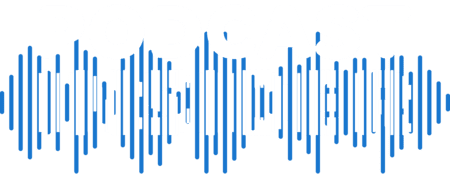 Knowing Your Podcast Topics Fuels Its Future
Knowing Your Podcast Topics Fuels Its Future
The first step in creating an excellent podcast is planning. To get the results you want from your podcasting efforts, you need to know the direction you’ll take for each and every episode you put together. And as you envision a path to proceed down with your guests — either through scripting or spontaneous discussion — you need to research the topics and themes of your episodes. This will help you achieve your long-term podcast goals and help you through the usual difficulties many podcasters face. Below is a guide to help you with the planning for your next few podcast episodes.
In starting this process, rather than thinking about all the episodes you will produce, just think about one of your future episodes. Think about one topic that you would like to cover on that episode. Below are some topics you might have heard in the past week on any of the podcasts in the Blubrry Podcast Directory.
- Stories of the podcast guest’s worst job and how it inspired them to enter their area of expertise.
- A podcast host’s personal activities during the past week.
- Cosmic influences on personal well-being.
- Tips for personal improvement from experts and experiences.
- Topics in the news the past week.
Now it is your turn. Grab a piece of paper and write down a phrase or complete sentence that summarizes the main topic you want to cover on that one episode. With that completed … congratulations! You are on your way to having a podcast your listeners are going to find compelling.
Now, let’s think about two more bits of information that will flesh out your one future episode. Many podcast episodes cover a second, additional topic. This additional topic can either complement the main topic or can be separate from — but not quite equal to — the main topic. For example, the main topic of your episode could be the history of your friendship with your guest. An additional topic could either be:
- The charity where your friend works.
- The top friend getaways in your state.
- Your friend’s best weekday meal recipe.
- Your friend’s detailed knowledge about Tom Hanks.
- History of a podcast host’s friendship with their guest.
Think again about the episode with the topic you have selected above, consider an additional topic you could discuss on that episode. Grab that piece of paper again and write down your additional topic. With that done, again, congratulations!
Lastly, every podcast episode should make a request of the audience. These “calls to action” clearly present the listener with what they can do to engage more fully with you and your show. This is something your audience craves! A few examples of these are simply asking your audience to:
- Go to Facebook and ‘Like’ us.
- Follow us on Instagram.
- Tell a friend about this episode.
- Go to the website.
- Subscribe to this podcast.
- Join us next week when our topic will be…
- Buy our book.
- Donate.
- Email us.
- Now, grab that piece of paper one more time and review your main topic and the additional topic you have selected for your episode, and choose a call to action that complements the topics you have selected. With that, you have determined a well-rounded, thoughtful podcast episode. Congratulations!
As you know, your work on that podcast episode is not over, hardly. But, you will find the next steps of podcast production easier if you know your topics and call to action. And what is great about this process is you can quickly go through this process again for each of your upcoming episodes. You can start recording with a sense of purpose and the determination that knowing your topics brings. Try this approach to your podcast planning and let us know how it works for you. Drop us a voicemail and tell us about successes you discover and any tips you could offer. Who knows, your feedback could appear in a future blog post.





